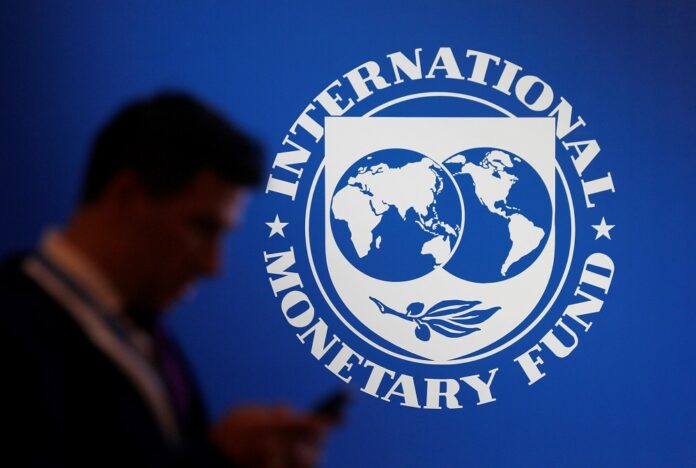Risks to the global financial system have grown over the past six months and could increase with a messy British exit from the European Union or an escalation of U.S.-China trade tensions, the International Monetary Fund said.
The IMF, whose spring meetings with the World Bank begin in Washington this week, noted that the global economic expansion is slowing, and an abrupt downturn could have a far-reaching impact.
The fund also warned against rolling back prudential regulations that could help to buffer the financial system in the event of a downturn.
“There is a risk that positive investor sentiment could deteriorate abruptly, leading to a sharp tightening of financial conditions,” the IMF said in its Global Financial Stability Report.
“This will have a larger effect on economies with weaker fundamentals, greater financial vulnerabilities, and less policy space to respond to shocks.”
On Tuesday, the IMF cut its expectations for global growth to its lowest level since 2016. It marked its third downgrade since October.
In Wednesday’s report, it cautioned a sharper-than-expected slowdown could spur tighter financial conditions.
In Wednesday’s report, the IMF urged policymakers to clearly communicate any changes to their monetary policy stances to minimize market swings.
Noting investor sentiment had improved since the Federal Reserve paused its rate-hiking cycle, it warned that a strong shift in Fed policy could trigger a sell-off in riskier assets.
The IMF also echoed concerns raised by U.S. officials over rising corporate debt levels, noting corporate sector risks appear elevated in about 70 per cent of systemically important countries.
A rapid tightening of financial conditions could drive a steep economic downturn, as the creditworthiness in the corporate debt market has deteriorated.
The stock of lower-rated investment-grade bonds has quadrupled since the 2008 financial crisis, and the stock of speculative-grade credits has nearly doubled.
“The U.S. corporate credit cycle appears to be at its highest point in recent history,” the IMF said, adding that global earnings growth has “likely peaked.”
The IMF noted that trading in British and European markets has remained orderly as the authorities struggle to negotiate an orderly British exit deal.
However, it warned that a protracted stalemate threatens to “unsettle financial markets, damage investors’ confidence, (and) adversely affect business investment.”
Globally, trade-dependent sectors have risen on expectations of a positive outcome for U.S.-China trade talks, the IMF said, but if those talks falter the organization expects a renewed sell-off.
To guard against financial vulnerabilities, the body said policymakers should proactively deploy prudential tools, such as the countercyclical capital buffer and bank stress testing.
In particular, regulators should develop tools to tackle climbing corporate debt from non-bank intermediaries.
“A rollback of regulatory reforms should be avoided,” it added.




